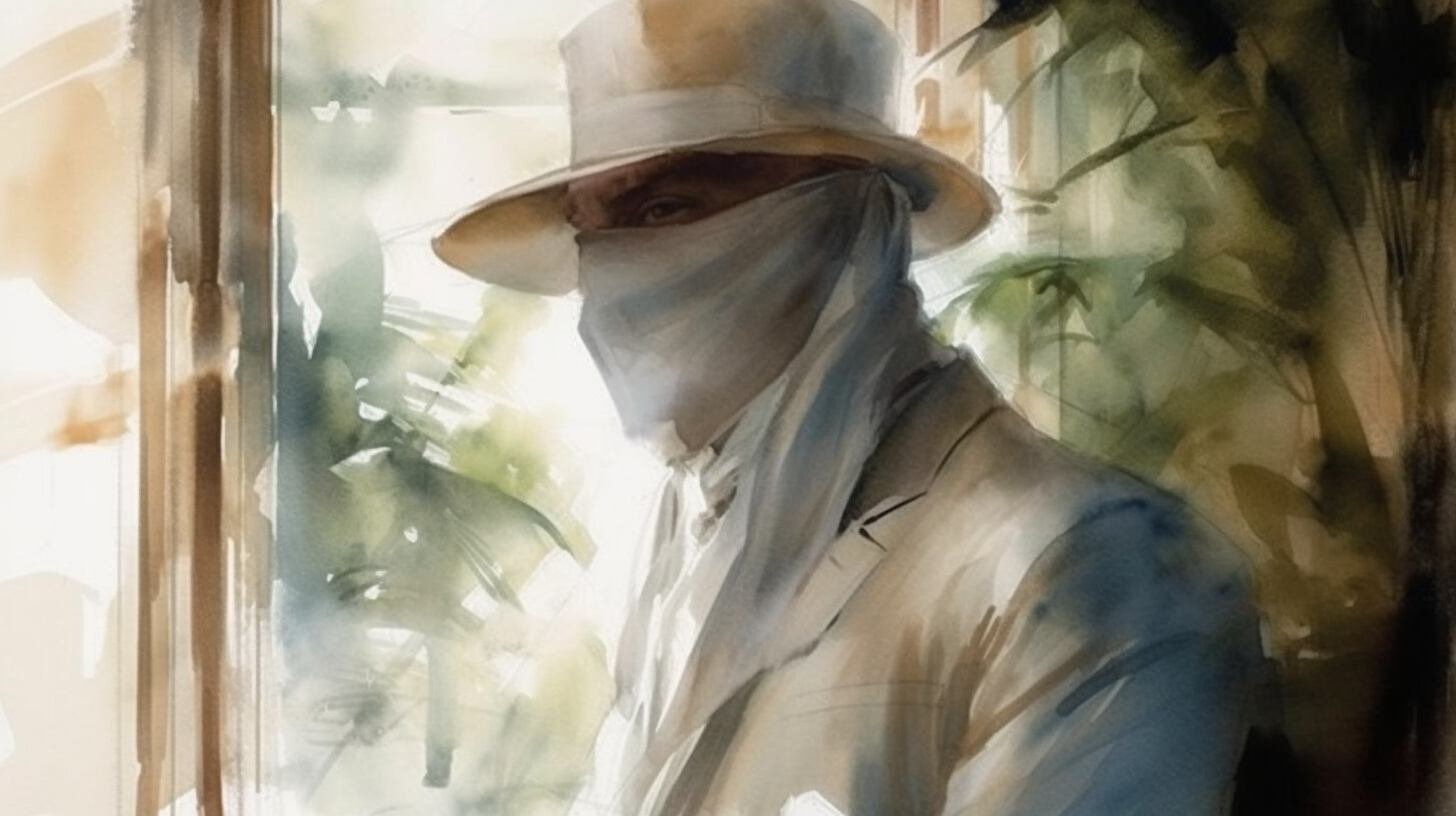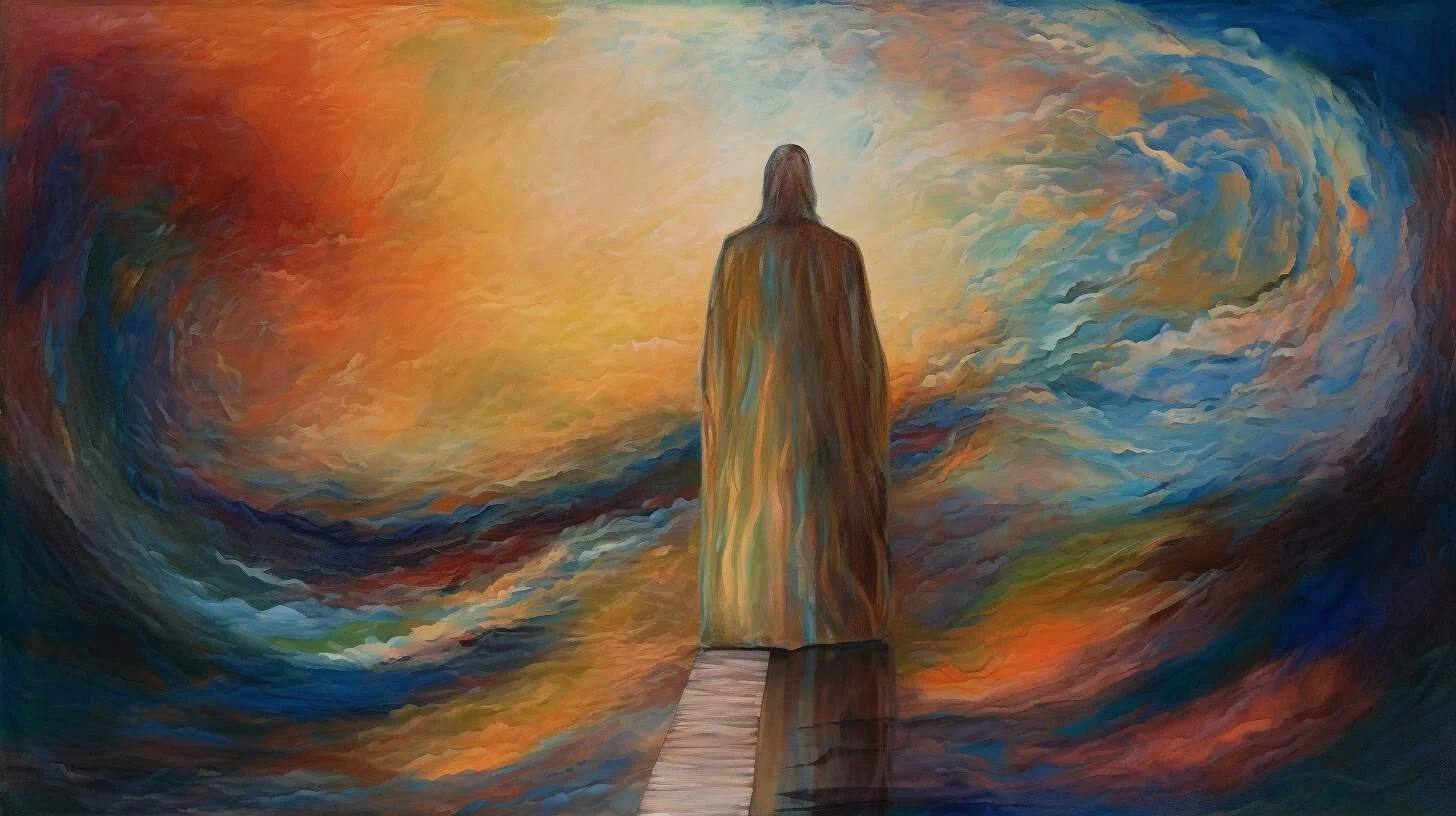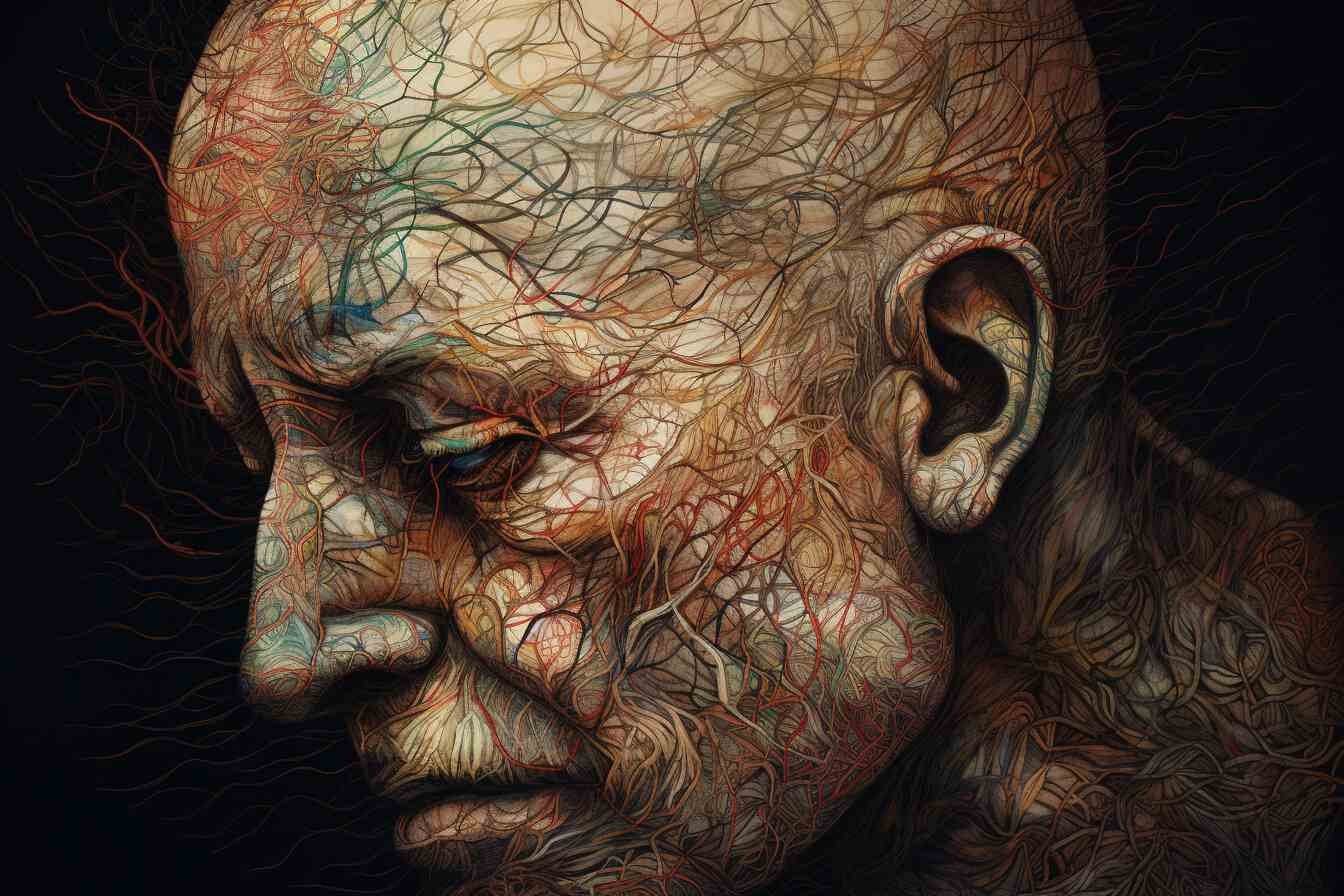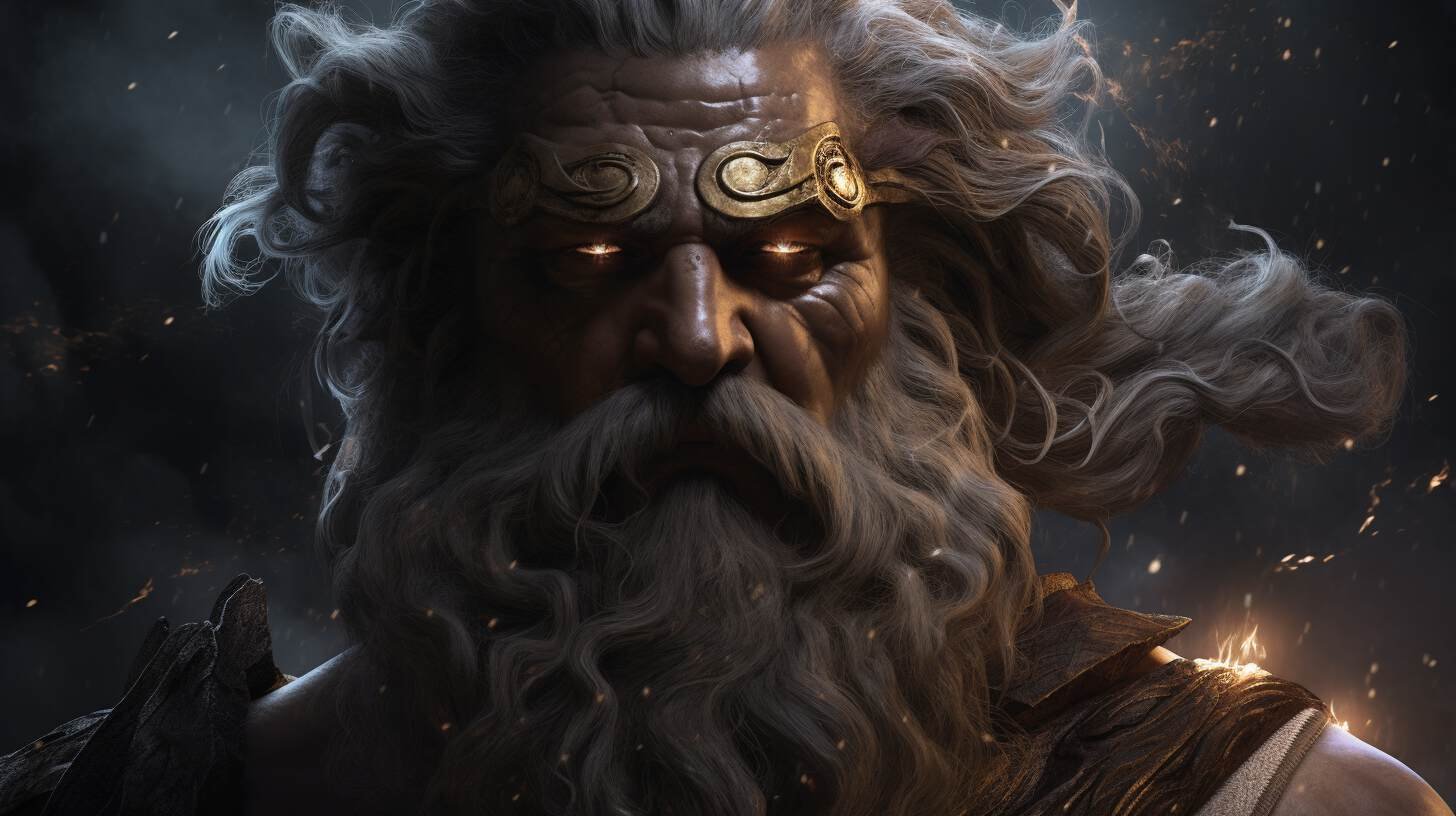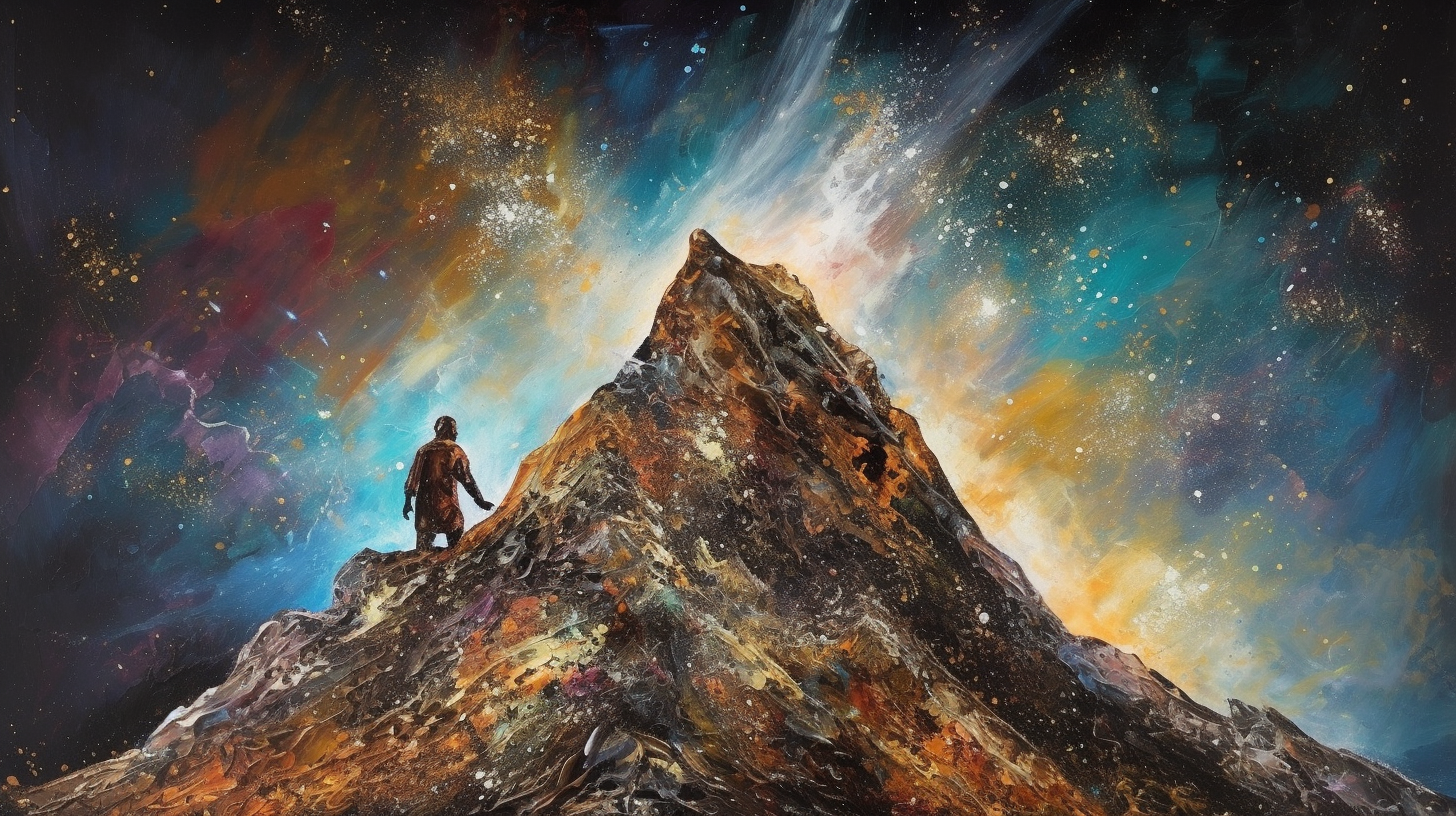15 Quotes that awaken the ‘masculine divine essence’
Table of Contents Show
There exists a force, a rhythm, a pulse - the masculine divine essence. It is a call to action, a demand for courage, a charge for the untamed spirit of man. Harnessing this force is akin to sailing against the wind, traversing treacherous paths and uncharted territories, delving into the darker caverns of our psyche. So, as we embark on this voyage to uncover the secrets on how to increase divine masculine energy, let us seek solace and guidance from 15 divine masculine quotes.
Each quote in this collection serves as a shard of wisdom, a beacon to guide men along this challenging journey. These are not just words strung together. These are the echoes of thoughts and beliefs that have sprung from the minds of thinkers and philosophers, writers and warriors - individuals who have grappled with the same stormy seas that we all must face.
1. Hemingway: The Undefeated Spirit
“But man is not made for defeat. A man can be destroyed but not defeated.”
A man, as Hemingway alludes to, is the living embodiment of unyielding resilience. Unseen in the chilling stillness of night, man contends not only with the external world but also with the demons of his internal landscape.
Destruction is but a chisel, shaping the monumental fortitude of man. In essence, he can be shattered, yet remains unbeaten.
2. Dumas: Weathering Life's Storm
“Life is a storm, my young friend. You will bask in the sunlight one moment, be shattered on the rocks the next. What makes you a man is what you do when that storm comes.”
Life – a tempestuous dance between moments of searing sunlight and the ice-cold despair of the rocks. Man, as Dumas suggests, is the master mariner, navigating through this tumultuous sea, his spirit burning like a lighthouse amidst the chaos.
The storm does not define him; his defiance does.
3. Dumas: Embracing Hazardous Adventures
“Never fear quarrels, but seek hazardous adventures.”
Fear, an ice-cold hand clutching at the heart of man, is a haunting specter to be banished. Dumas proffers the notion that man should venture into the labyrinth of the unknown, courting peril with a lover’s embrace.
Hazardous adventures are the crucibles from which great men emerge.
4. Malraux: The Hidden Self
“Man is not what he thinks he is, he is what he hides.”
Man, as Malraux puts it, is not a creature of surface and appearance, but of depth and secrets. Beneath the shadowy veils of consciousness lies a deeper truth, a reflection in a dark mirror.
Malraux exposes the stark duality of man, revealing that transcendent masculinity is not the face presented to the world, but the hidden essence beneath, the cold steel beneath the velvet glove.
5. Burgess: The Power of Choice
“When a man cannot choose, he ceases to be a man.”
It is in the ability to choose, to decide, that man finds his freedom and his cage, suggests Burgess. Choice is the crucible in which spiritual manhood is both forged and tested. It's not the absence of shackles but the ability to choose one's path that marks the masculine spirit.
6. Nietzsche: Aspirations and Contradictions
“But it is the same with man as with the tree. The more he seeks to rise into the height and light, the more vigorously do his roots struggle earthward, downward, into the dark, the deep - into evil.”
Man is likened to the ancient tree by Nietzsche, a being split between the heavens and the underworld. With each striving toward the ethereal light, the roots of his nature wrestle with the earth's darkened core.
This paradox of ascension and descent is the intricate dance of the human condition.
7. Steinbeck: Choices Define Manhood
“Man has a choice and it’s a choice that makes him a man.”
The defining line between a man and an animal lies in the ability to choose, Steinbeck posits. In the gloom of indecision, a man wields his power to carve out his destiny. Each decision he makes, for better or worse, etches deeper the shape of his humanity.
8. Hume: The Man in Philosophy
“Be a philosopher; but, amidst all your philosophy, be still a man.”
Hume implores the reader to be a philosopher, yet reminds us of the importance of our tether to the human experience. Amid the ethereal mists of thought, the raw and tangible essence of man should never be lost.
To ponder, yet to feel, is to truly exist, a hallmark of masculine spirituality.
9. Frankl: Meaning Beyond Self
“Man is originally characterized by his “search for meaning” rather than his “search for himself.” The more he forgets himself—giving himself to a cause or another person—the more human he is. And the more he is immersed and absorbed in something or someone other than himself the more he really becomes himself.”
Frankl delves into the paradox of self-identity and purpose. It's not in the pursuit of his own image that man truly comes into being, but in the surrender to something greater. By losing himself in the cosmic tapestry of life, he finds his true essence and spiritual masculinity.
10. Hopf: The Cycle of Strength
“Hard times create strong men, strong men create good times, good times create weak men, and weak men create hard times.”
The chilling wheel of time, as Hopf notes, is a cycle of strength and weakness, prosperity and hardship. The struggle against the cold gale of hard times forges the steel of man's resilience. As the wheel turns, prosperity may soften man, yet this is but the crucible for the next generation's strength.
11. Conrad: Reflecting Personal Weakness
“Never test another man by your own weakness.”
Conrad proposes a profound insight into the human psyche. Man, in his glacial solitude, often projects his own frailties onto others, a cold mirror reflecting his fears. To evaluate others by his limitations is to shackle them to his personal abyss.
12. Coelho: The Journey's Means
“A Warrior knows that the ends do not justify the means. Because there are no ends, there are only means...”
The path of the warrior, as per Coelho, is not merely a quest for a distant goal, but an exploration of the process itself. The focus lies not in the outcome, which is but a fleeting mirage, but in the present - the grim, gritty, and glorious means.
13. Machiavelli: Symbiosis of Skill and Chance
“Without an opportunity, their abilities would have been wasted, and without their abilities, the opportunity would have arisen in vain.”
The dance between ability and opportunity is a melancholic ballet, as described by Machiavelli. An opportunity without the ability to seize it is like a ghost ship on a foggy night, while ability without opportunity is a bright torch in an endless dark void.
14. Machiavelli: The Armed Mind
“Before all else, be armed.”
In a world replete with unexpected turns and unforeseen adversities, Machiavelli counsels us to arm ourselves, not just physically, but mentally and emotionally. Be it the cold wind of betrayal, or the dark storm of failure, a prepared man is not easily defeated.
15. Machiavelli: Shadows of Power
“A prince who wants to keep his authority must learn how not to be good and use that knowledge, or refrain from using it, as necessity requires.”
The prince, as depicted by Machiavelli, must sometimes wade through the murky waters of deceit and manipulation to maintain his authority. He suggests that the rules of power are not always draped in light, but often lie hidden in the shadows of moral ambiguity.
16. Conclusion
As the whispers of these divine masculine quotes fade, let us carry forth their wisdom. Let discerning men remember Hemingway's defiance in defeat, Dumas' storm of life, Malraux's hidden identity, and Burgess's power of choice.
May all men embody Nietzsche's duality of aspirations, Steinbeck's decisive moment, Hume's philosopher within the man, and Frankl's search for meaning.
May the invisible men of the world heed Hopf's cyclical wheel of time, Conrad's mirror of personal weakness, and Coelho's warrior wisdom.
Finally, let men never forget Machiavelli's dance of ability and opportunity, his emphasis on preparedness, and his exploration of the shadows of power.
Read more on “How To Awaken Divine Masculine Energy: One And Only Way”.





